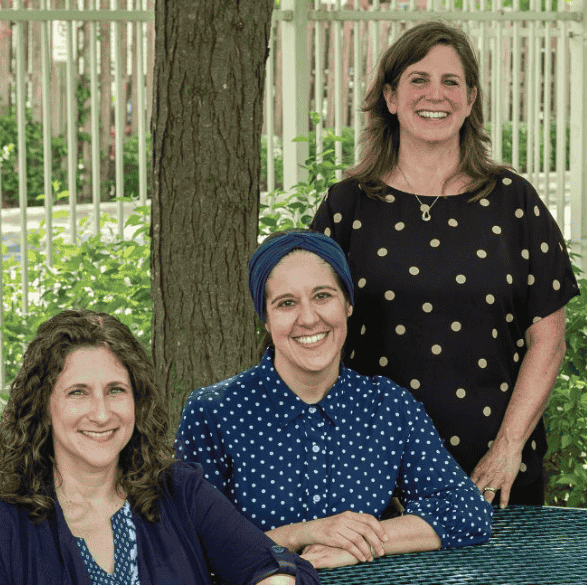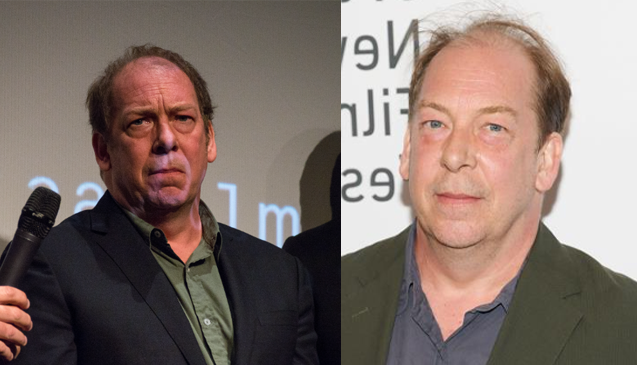Babette Rosenbaum is a name synonymous with precision and dedication in the film industry. Though much about her early life remains private, it is evident that her upbringing played a significant role in shaping her passion for cinema. Her family’s influence, coupled with her natural curiosity, inspired her to delve into the technical and creative aspects of filmmaking.
Growing up, Babette developed an appreciation for storytelling and the collaborative art of filmmaking. While details about her family and early education are not widely available, her career reflects a blend of discipline and creativity that hints at a strong foundation. Babette’s ability to work seamlessly across different departments in the film industry suggests she had a robust support system encouraging her to pursue her ambitions.
The Multifaceted Career of Babette Rosenbaum
Babette Rosenbaum’s work in the editorial, editorial sound, and general sound departments highlights her versatility and technical expertise. Her contributions to films such as Boat Trip (2002), Barefoot (2005), and Die Bluthochzeit (2005) demonstrate her ability to balance storytelling with the technical precision required in post-production.
Her role as an editor allows her to sculpt raw footage into cohesive narratives, ensuring that the director’s vision comes to life. Meanwhile, her work in the sound department showcases her understanding of how auditory elements enrich the cinematic experience. Babette’s unique ability to manage both the visual and auditory components of filmmaking makes her an invaluable asset to the industry.
These three films—Boat Trip, a light-hearted comedy, Barefoot, a romantic dramedy, and Die Bluthochzeit, a German black comedy-drama—showcase Babette’s adaptability in working across genres and styles. This diversity not only underlines her technical skills but also reflects her passion for bringing different kinds of stories to life.

Notable Projects: A Deep Dive
Babette’s career includes several noteworthy projects, but her contributions to Boat Trip, Barefoot, and Die Bluthochzeit deserve special mention for their unique challenges and accomplishments.
- Boat Trip (2002): As a comedy, Boat Trip relied heavily on precise timing, both in terms of editing and sound. Babette’s ability to maintain the comedic rhythm while ensuring technical excellence was critical to the film’s success. Her meticulous editing ensured that jokes landed perfectly, while her work in the sound department enriched the film’s playful tone.
- Barefoot (2005): This romantic dramedy required a more nuanced touch. Babette’s role as an editor was instrumental in balancing the film’s lighter and heavier moments, ensuring a seamless flow of emotions. Her contribution to the sound department added depth to the film’s intimate scenes, highlighting her ability to adapt to different genres.
- Die Bluthochzeit (2005): Known internationally as The Wedding Party, this German film presented unique challenges, especially in its darkly comedic tone. Babette’s expertise in both editing and sound was vital in creating the sharp contrasts between humor and tension, helping the film achieve its distinct identity.
Through these projects, Babette established herself as a creative force capable of enhancing films across genres and formats.
Behind the Scenes: The Role of an Editor and Sound Specialist
As an editor, Babette Rosenbaum holds a pivotal role in filmmaking. Her responsibilities extend beyond simply cutting footage; she acts as a storyteller, shaping the narrative through pacing, structure, and visual continuity. This requires a keen eye for detail and an understanding of how to evoke emotions through timing and transitions.
In the sound department, Babette’s work involves creating an immersive auditory experience for viewers. From syncing dialogue to refining background noises and sound effects, her contributions ensure that every auditory element aligns perfectly with the visual components. Her dual expertise in editing and sound highlights her comprehensive understanding of film production and post-production processes.
Babette’s behind-the-scenes contributions often go unnoticed by the average viewer, yet they are crucial to the final product. Her ability to enhance both visual and auditory storytelling underscores her dedication to delivering high-quality cinematic experiences.
Balancing Career and Personal Life
While Babette’s professional achievements are well-documented, her personal life remains largely private. This discretion may be intentional, allowing her to maintain a sense of normalcy away from the public eye. Balancing a demanding career in the film industry with personal commitments is no small feat, and Babette’s ability to excel in her field suggests she has mastered this art.
Her work requires long hours and unwavering focus, often leaving little room for personal pursuits. Yet, Babette’s consistent contributions to the industry suggest a strong support network and a deep passion for her craft. Whether through family, friends, or personal resolve, she has managed to sustain her creative output without compromising her personal values.
Babette Rosenbaum’s Legacy in the Film Industry
Although not a household name, Babette Rosenbaum’s work has left an indelible mark on the film industry. Her contributions to editing and sound have enhanced the quality of numerous films, elevating the art of storytelling.
Babette’s legacy lies in her ability to bring out the best in every project she undertakes. Her dedication to her craft, combined with her willingness to adapt to different genres and roles, serves as an inspiration to aspiring filmmakers. In an industry that often celebrates visible talent, Babette’s behind-the-scenes expertise reminds us of the importance of technical and creative collaboration in filmmaking.
Conclusion
Babette Rosenbaum exemplifies the blend of creativity, technical skill, and dedication required to succeed in the film industry. From her early career to her notable work on films like Boat Trip, Barefoot, and Die Bluthochzeit, Babette has consistently demonstrated her versatility and expertise.
While much of her personal life remains private, her professional achievements speak volumes about her talent and work ethic. Babette’s contributions to editing and sound serve as a testament to her commitment to the art of filmmaking. As the industry continues to evolve, her work remains a shining example of the impact that skilled editors and sound specialists can have on the cinematic experience.
Frequently Asked Questions (FAQs)
Who is Babette Rosenbaum?
Babette Rosenbaum is a film industry professional known for her work in the editorial and sound departments. She has contributed to films such as Boat Trip (2002), Barefoot (2005), and Die Bluthochzeit (2005).
What is Babette Rosenbaum’s area of expertise?
Babette specializes in film editing and sound design, playing a key role in shaping narratives and creating immersive auditory experiences.
What are some notable projects Babette Rosenbaum has worked on?
Her notable works include Boat Trip, a comedy; Barefoot, a romantic dramedy; and Die Bluthochzeit, a German black comedy-drama.
Is Babette Rosenbaum married or does she have a family?
Babette keeps her personal life private, and there is little public information available about her family or marital status.
What makes Babette Rosenbaum unique in the film industry?
Her ability to excel in both editing and sound design, combined with her versatility across genres, sets her apart as a multifaceted talent.
Why is Babette Rosenbaum’s work important?
As an editor and sound specialist, Babette plays a crucial role in shaping the overall quality of films, ensuring that both the visual and auditory elements work in harmony to enhance storytelling.




